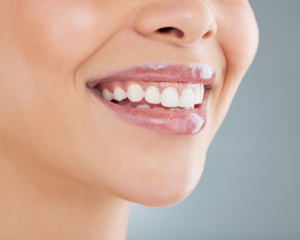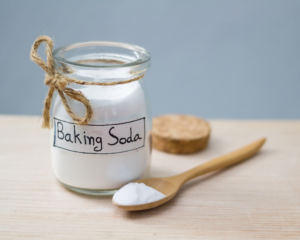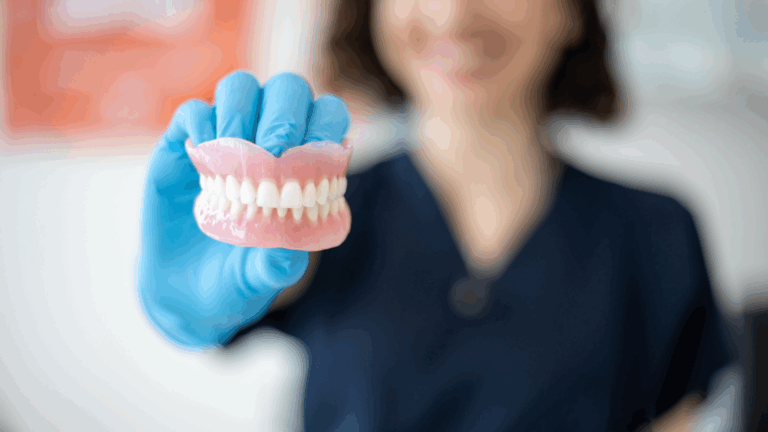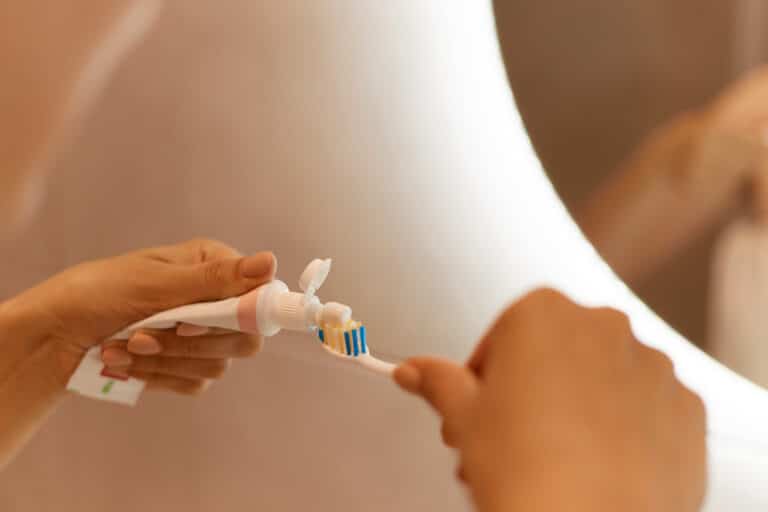If you’ve ever caught yourself wondering about the mysterious substance that seems to stubbornly cling to your teeth, they are probably tartar! Let’s explore the ins and outs of tartar, from its causes and effects to ways to prevent and remove it. So, sit back, relax, and let’s get down to the nitty-gritty of keeping those pearly whites sparkling!
What is tartar?
Tartar, or dental calculus, is like the tough shell that can develop on your teeth. It’s formed when the sticky layer of bacteria on your teeth, called plaque, hardens over time.
What is black tartar on teeth?
Black tartar, often referred to as “black calculus,” is a specific type of tartar that appears darker in colour compared to its yellowish or brownish counterparts. This dark colour is typically caused by factors like tobacco use, certain beverages, or even specific foods that contribute to staining over time. It’s essential to address black tartar promptly, not only for aesthetic reasons but also for the potential oral health implications.
What causes tartar on teeth?
The formation of tartar is a gradual process influenced by various factors. Poor oral hygiene is a major player – if you’re not brushing and flossing regularly, plaque has more time to mineralise and harden into tartar. Additionally, factors such as genetics, age, and saliva composition can also contribute to tartar build-up.
Does oral hygiene play a factor in tartar formation?

Absolutely! The way you care for your teeth directly affects tartar formation. When you neglect to brush and floss regularly, plaque (that filmy layer of bacteria) can build up. Over time, this plaque can harden into tartar, especially in those hard-to-reach spots. So, keeping up with your oral hygiene routine is a big deal when it comes to preventing tartar.
What role does diet play in tartar formation?
Your diet can have a significant impact on the formation of tartar. Consuming sugary and starchy foods provides a feast for the bacteria in your mouth, leading to increased plaque production. Furthermore, foods high in acid content can weaken tooth enamel, making it easier for tartar to take hold. On the flip side, crunchy fruits and vegetables like apples and carrots can help naturally clean teeth by stimulating saliva production and scrubbing away plaque.
What are the negative effects of tartar?
Tartar might seem harmless, but it can have some serious repercussions for your oral health. For starters, it creates a rough surface that attracts even more plaque, exacerbating the issue. Over time, this accumulation can lead to tooth decay and gum disease, both of which can cause discomfort, pain, and even tooth loss if left untreated.
Can tartar build-up lead to gum disease?
Absolutely! The relationship between tartar and gum disease is a close one. As tartar builds up along the gumline, it creates a barrier that promotes the growth of harmful bacteria. This bacterial invasion can lead to gingivitis, the early stage of gum disease, characterised by redness, swelling, and bleeding gums. If not addressed, gingivitis can progress to more severe forms of gum disease, such as periodontitis that can have lasting impacts on your oral health.
With that being said, gum disease is still treatable when consulted with a dentist. Book a consultation with our dentists here at WeSmile!
Does tartar build-up cause bad breath?

The infamous bad breath – another consequence of tartar build-up. As bacteria thrive in the nooks and crannies of tartar, they release unpleasant-smelling compounds, causing bad breath, or halitosis. So, if you’re having trouble winning friends with your breath, tartar might just be the culprit.
Does tartar lead to tooth sensitivity?
Ever taken a sip of a hot or cold beverage only to be met with a sharp jolt of pain? Tooth sensitivity might be the result of exposed tooth roots due to receding gums, often caused by advanced gum disease stemming from tartar build-up. These exposed areas are much more sensitive to temperature changes and external stimuli, leading to discomfort.
Can tartar be removed from teeth?
The good news is, yes, tartar can be removed from teeth. However, it’s not something you can achieve through your regular brushing and flossing routine. Removing tartar requires a bit of professional intervention.
How do you remove tartar from teeth?
To effectively remove tartar, a visit to your dentist or dental hygienist is in order. The process, known as scaling and polishing, involves using specialised tools to carefully scrape away the hardened deposits from your teeth. It’s a non-invasive procedure that’s typically painless, leaving you with a cleaner and fresher-feeling mouth.
How do you remove tartar from the back of your teeth?
Tartar isn’t picky about where it sets up shop, and that includes the back of your teeth. While it might be a bit trickier to access, your dentist or dental hygienist has the expertise and tools to reach those areas during a scaling procedure. This is yet another reason regular dental visits are crucial for maintaining your oral health.
How can our dental clinic help prevent tartar build-up?
Prevention is always better than cure, and when it comes to tartar, a proactive approach is your best bet. Here at WeSmile Dental Clinic, we offer comprehensive cleaning and preventive care such as scaling and polishing that includes professional cleanings and personalised oral hygiene instructions. To learn more about how to care for your teeth and how we can help, feel free to reach out to us using the form below!
Are there home remedies for removing tartar?
While professional cleaning is the most effective way to remove tartar, there are some home remedies that might help reduce its build-up. Oil pulling with coconut oil and using a tartar-control toothpaste are a couple of options. However, these methods might not replace the need for regular dental visits.
Is tartar removal a painful procedure?
One of the reasons people put off dental visits is the fear of pain. Fortunately, tartar removal is generally not painful. The procedure is carried out using specialised tools designed to minimise discomfort. If you do experience any sensitivity, your dentist can adjust their approach to ensure your comfort.

How do you maintain a tartar-free smile after dental cleaning?
After your dental cleaning, it’s important to maintain a diligent oral hygiene routine at home. This includes brushing at least twice a day, flossing daily, and using an antimicrobial mouthwash if recommended. Remember, consistency is key to preventing tartar build-up.
What is the cost of removing tartar?
The cost of tartar removal can vary depending on factors such as the extent of the build-up and the dental clinic you visit. Generally, preventive measures like routine dental visits can help you avoid more extensive and expensive treatments down the line.
You can refer to our dental treatment pricing for more details or book a consultation session with our friendly dental team!
FAQs
Is tartar build-up different for children and adults?
Tartar build-up is a concern for both children and adults. Children might be more prone to tartar formation if they struggle with proper brushing and flossing techniques. As for adults, factors like diet, genetics, and oral hygiene practices all play a role in tartar development.
Are there specialised toothpastes for tartar control?
Absolutely! Many toothpaste brands offer variants specifically formulated for tartar control. These toothpastes often contain ingredients that help prevent tartar build-up and promote a cleaner mouth.

Can baking soda help to remove tartar from teeth?
Baking soda, when used in moderation and with caution, can have some tartar-removing effects due to its mild abrasive properties. However, it’s essential to consult with your dentist before using any unconventional methods, as they can provide guidance based on your unique oral health needs.
Tackling tartar for a brighter smile
We’ve gained insights into causes, effects, and strategies for prevention of Tartar. Regular dental visits, along with conscientious oral hygiene and mindful dietary choices, will keep tartar at bay, paving the way for healthier, happier smiles in the days to come. If you’d like to seek advice on preventing tartar, book a consultation session with us today!


